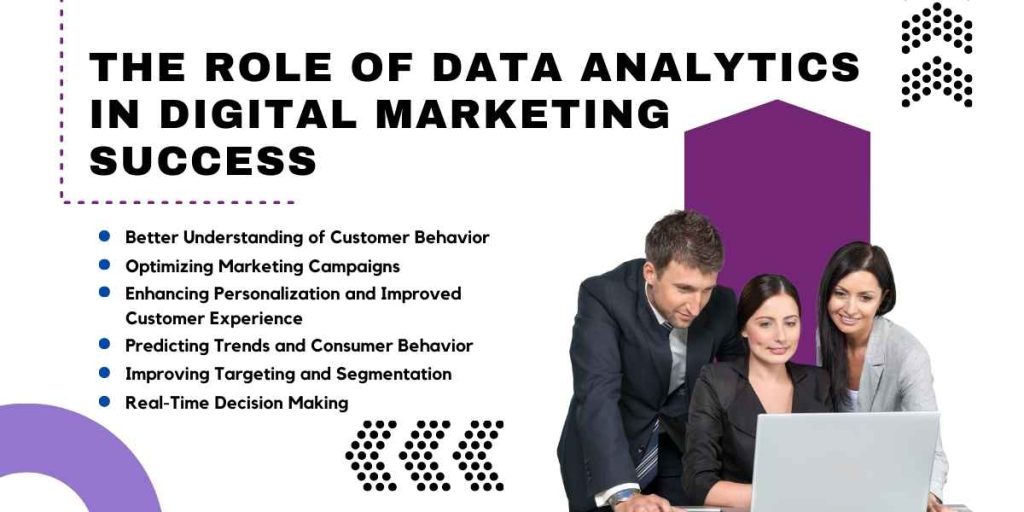How Blockchain Technology is Shaping Digital Marketing The digital marketing landscape is not steady, it is constantly evolving and changing. The new technologies are redefining how businesses connect with their...
Read More
Data analysis is an essential tool for all businesses in the ever-evolving world of digital marketing which are constantly seeking ways to refine their strategies and maximize their return on investment (ROI). This powerful tool allows businesses to make real-time changes in their campaigns, enhance user experience, predict results, and enhance sales significantly through consistent efforts. By leveraging data, businesses can make informed decisions, optimize campaigns, and better understand their audience’s online behavior. The following studies show how impactful data analysis can be to draw profit and engagement in digital space:
In this blog, we will discuss in comprehensive detail the crucial role of data analytics in digital marketing success and how it can give your business a much-needed competitive edge.
By analyzing these KPIs, businesses can determine which campaigns are performing well and which need changes, ensuring sustainable use of resources.
Today’s world is fast-paced with advanced technologies and a data-driven approach gives a competitive edge to companies. Data analytics is an essential tool for measuring and changing digital marketing strategies and achieving success. It enables businesses to understand their targeted audience and craft personalized solutions for them. Data analysis also helps optimize campaigns and make informed decisions that drive better results. By integrating data analytics into your digital marketing strategy, you can stay ahead of the competition while consistently enhancing user experience, improving your ROI, and delivering more effective, targeted campaigns.
The future of digital marketing and business success lies in data-driven strategies, so, if you are not already leveraging data analytics as a measuring tool of success and growth now is the time to start.
How Blockchain Technology is Shaping Digital Marketing The digital marketing landscape is not steady, it is constantly evolving and changing. The new technologies are redefining how businesses connect with their...
Read MoreBoosting SEO with Schema Markup: A Beginner’s Guide In the competitive business world, small and medium-sized businesses (SMBs) must manage customer relationships effectively to ensure sustainable growth and drive profits....
Read MoreWhy Gamification is the Next Big Thing in Customer Engagement In today’s digital space, grabbing customer’s attention and holding it is a challenge for businesses. Changing priorities of customers encourages...
Read More